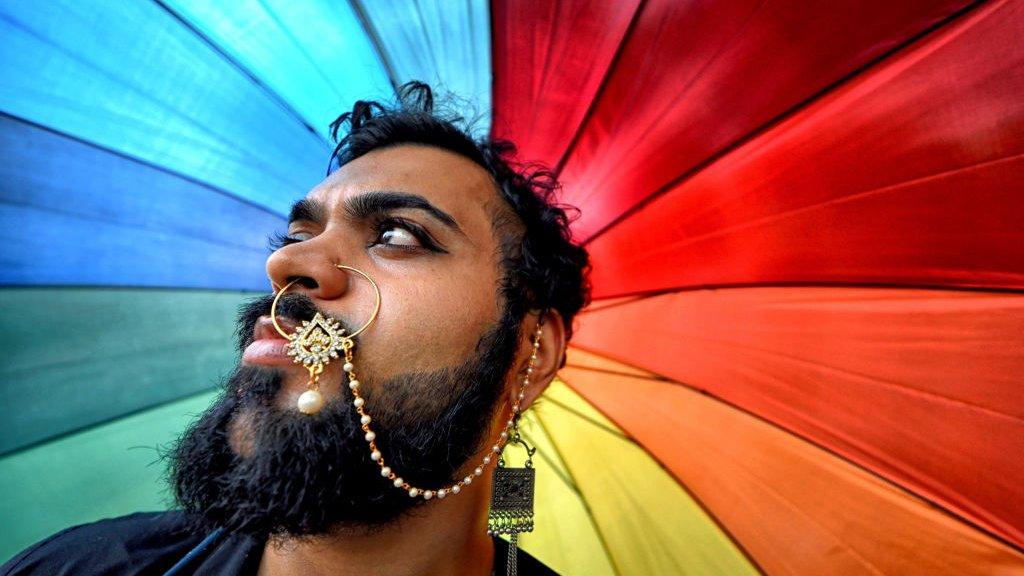377A repeal: Singapore turns page on dark LGBT history
- Published
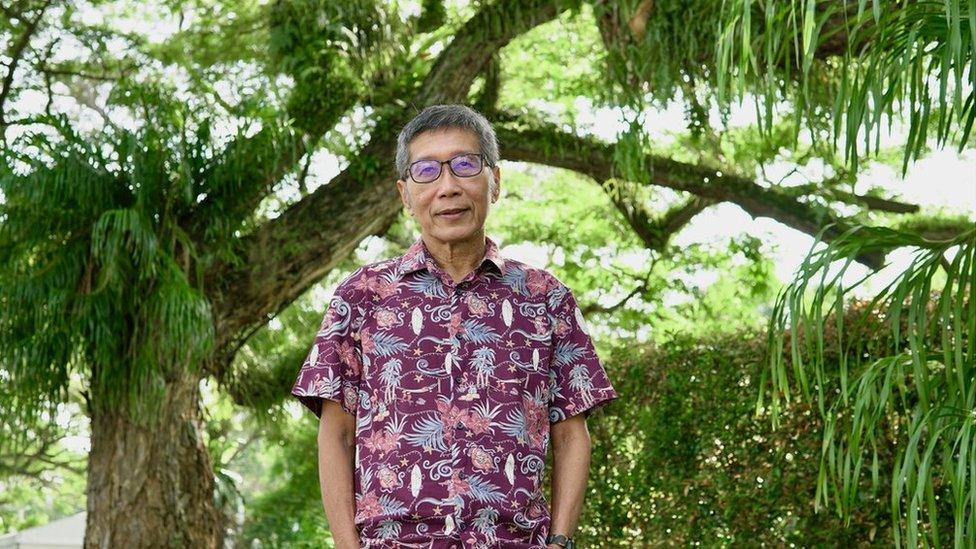
Russell Heng at the Feet of Five Trees in Esplanade Park
Standing in Singapore's tranquil Esplanade Park, Russell Heng pointed to the spot where he was once caught by the police - just for being gay.
It looks like any other tree-lined corner in the city. But back in the 1980s, before the age of the internet and Grindr, it was a popular meeting spot for gay men in a country where homosexuality was in effect criminalised.
Nicknamed the Feet of Five Trees, the spot's towering raintrees provided cover and seclusion, recalled Mr Heng, a playwright and activist.
"We were roaming about that night. And then suddenly, there was a loud voice - a plainclothes policeman - who started shouting at us," he said.
The men were forced to line up in a row as the policeman fiercely berated them. "He said 'You should be ashamed of yourself'.
"We were just walking in the park," he said. "You felt psychologically that maybe you did something wrong… basically it was bullying."
For decades, Singapore's government preserved the controversial 377A law inherited from British rule, which banned sex between two men.
Authorities argued that it reflected Singapore society's view that homosexuality was not acceptable.
But last week its parliament repealed the law, just months after leader Lee Hsien Loong's surprise announcement they would scrap the ban because of changing attitudes.
The repeal of 377A turns the page on a dark chapter of Singapore history that is rarely talked about these days, where gay men not only faced intense social stigma but were even actively targeted by authorities.
Mr Heng and the other men at Esplanade Park that night were let off with only a warning. But others were not so lucky.
For several decades, the police would conduct so-called "anti-gay" raids on nightclubs that gay men were known to frequent, or cruising spots in beaches and parks.
Often this would include the controversial use of entrapment, where policemen would pose as gay men at popular meeting spots and promptly arrest anyone who engaged with them.
Those arrested usually would be charged with soliciting, outrage of modesty, or for committing indecent acts. National newspapers would carry details of their arrests, listing their names, ages and occupations.
Most were fined or served a few months in jail. But in one particular incident in 1993 known as "the Fort Road raid" for its location, several men were arrested, then sentenced to Singapore's notoriously harsh punishment of caning.
This was later overturned in an appeal, with the judge noting that the way the men were caught and charged was "disquieting".
For many gay men, the raids sent a clear message that their existence was frowned upon. While anti-gay violence was not common in tightly-controlled Singapore, many in the community were fearful of coming out to their friends, family and wider society.
"You always had to be furtive, you always feared the glare of scrutiny. That was part of the instinct of being gay back then," said Mr Heng, who is 71 years old.
By the 2000s the raids had decreased, and the issue of homosexuality - once a taboo topic - became increasingly openly discussed.
Then in 2007, in a landmark parliamentary debate over 377A, Singapore's government promised that while it would keep the law it would not enforce it.
These moves came as Singaporeans slowly became more accepting of LGBT people. Recent surveys show that, while there is still a significant number who think homosexuality is "wrong", there is also rising support for gay rights.
The city-state has developed a thriving LGBT scene, with an increasing number of LGBT-friendly establishments and companies promoting diversity policies.
The biggest civil society gathering in Singapore - where mass rallies and demonstrations remain extremely rare - is Pink Dot, an LGBT rights event that draws thousands of supporters every year.
Activism has become more prominent with more lobby groups and support communities emerging - a far cry from the days where gay rights organisations found it difficult even to exist.
Mr Heng is a founding member of one of the oldest LGBT groups in Singapore, People Like Us, which was twice rejected permission to register as a society in the 1990s. In their early days they were closely monitored by the authorities, recalled Mr Heng, with plainclothes policemen sitting in on their public talks and meetings, and identifying themselves afterwards.
"There are younger people now who were born during a time when Pink Dot was already a fact. They would take it as part of the landscape, that gay people are okay. They don't know about this other time before," said Mr Heng.
Some want to change that.
One recent evening a group of tourists threaded through the streets of downtown Singapore on a unique tour, led by their guide, 34-year-old Isaac Tng.
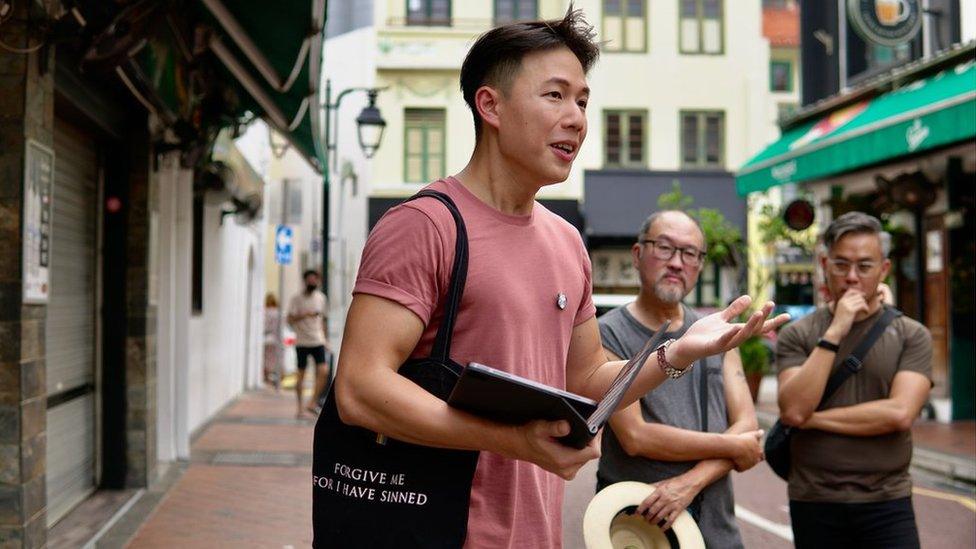
Mr Tng came up with Singapore's first LGBT history walking tour
Standing on the banks of the Singapore River, they were told about 19th Century Chinese male immigrants who turned to prostitution.
The next stop was a nondescript office building, which used to be Singapore's first gay sauna. Later, they were taken to an upscale hilltop restaurant - a popular gay cruising spot in the past, they were told.
Mr Tng told the BBC he decided to start giving LGBT history tours after realising there was an "amnesia", particularly among younger Singaporeans. His tours have attracted a mix of both straight and gay attendees.
One outcome of the lack of enforcement of 377A is that "there are people who don't really care because they've never been subjected to it," he said.
With more attention paid to 377A in recent years, including legal attempts to overturn it, "there's been greater interest and people are more curious now" about LGBT history, though "the resources are still lacking", he added.
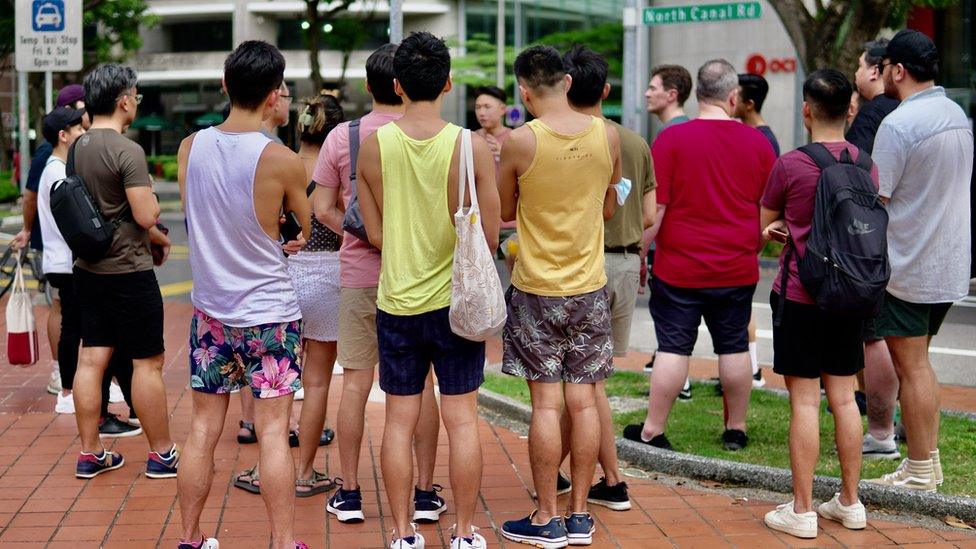
Mr Tng's tours attract a mix of gay and straight attendees
With 377A's repeal, the law is now officially a thing of the past. But many in the LGBT community remain cautious even as they celebrate.
Alongside the repeal, lawmakers voted to amend the constitution, which in effect rules out the possibility of gay marriage for now.
The vote also saw parliamentarians voicing concern about "militant homosexuals" and the erosion of religious freedoms, which LGBT groups in turn have called "unsubstantiated rhetoric and fearmongering".
"Some of these leaders are reluctantly repealing 377A. Going forward I think it means gay rights will become a lot more sensitive. It feels more like a compromise rather than a huge milestone," said Mr Tng.
"I'm so glad it happened. But I'm also not elated, because it's taken so long," said Mr Heng. "I think a gay friend put it very well: it's like a nice, hot cup of coffee that got left on the table.
"You drink it now, it's still coffee, it tastes like coffee. But it's gone cold."
- Published22 August 2022
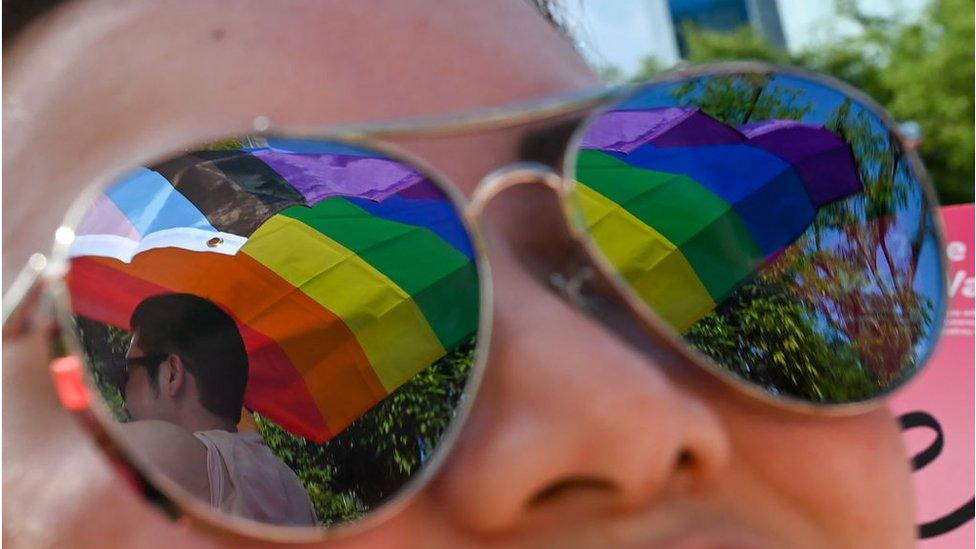
- Published23 August 2022
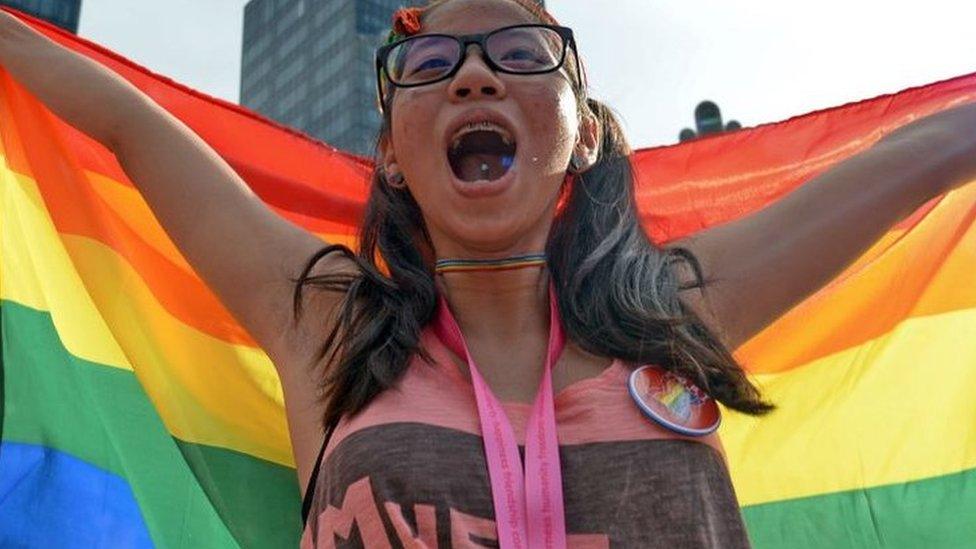
- Published29 June 2021
